NASUCA
Steve Mitnick has authored four books on the economics, history, and people of the utilities industries. While in the consulting practice leadership of McKinsey & Co. and Marsh & McLennan, he advised utility leaders. He led a transmission development company and was a New York Governor’s chief energy advisor. Mitnick was an expert witness appearing before utility regulatory commissions of six states, D.C., FERC, and in Canada, and taught microeconomics, macroeconomics, and statistics at Georgetown University.
Innovation plus new infrastructure are necessary to achieve decarbonization goals in many states as set by legislatures, and where not set, often simply desired as the direction to go in by energy and utilities companies. But reaching those goals is expensive.

Public Utility Commission hearings often now involve parties wrangling over how to include these transition costs in rates. Enter the Consumer Advocates, charged with looking out for consumers at all times, but now with more to look out for. That means they are busier than ever.
Public Utilities Fortnightly caught up with some of these hardworking Consumer Advocates who, in their important roles across the country, are looking after the utilities' customers. Listen in as they discuss their advocacy work further complicated by the energy transition.
The roundtable includes NASUCA President Chris Ayers (North Carolina), Vice President Michael Moody (Michigan), Treasurer Tom Content (Wisconsin); the Executive Committee's Michele Beck (Utah), Bill Fine (Indiana), Nanette Edwards (South Carolina), Patrick Cicero (Pennsylvania), David Lapp (Maryland); and Executive Director David Springe.
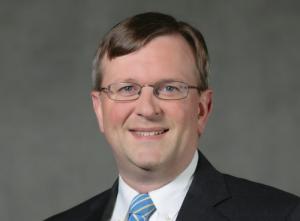 Chris Ayers: We are unique in North Carolina. We are one of the largest offices and I’ve got eighty-one employees when we are fully staffed. We are responsible for audits and investigations of all the cases that come before our Commission.
Chris Ayers: We are unique in North Carolina. We are one of the largest offices and I’ve got eighty-one employees when we are fully staffed. We are responsible for audits and investigations of all the cases that come before our Commission.
PUF's Steve Mitnick: What do you think is the role of a State Consumer Advocate in today's utility and utility regulatory world?
Michael Moody: My office, the Michigan Department of Attorney General, represents all customers in the state. We see ourselves as representing all customers and ensuring that rates are affordable, fair, and reasonable. Our focus is keeping rates down and implementing some of the policies from our governor and the Attorney General.
PUF: Patrick, what is the role of State Consumer Advocate Offices?
Patrick Cicero: I come at this position the same way I've come at every job in my career, which is to translate real world problems to the Public Utility Commission. Utility issues matter tremendously to households across Pennsylvania and across the country. To businesses, to economic development.
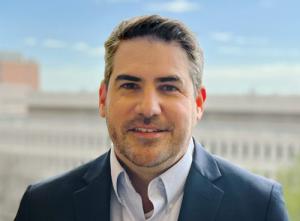 Michael Moody: With the push for carbon-free resources and more transmission, we’re at the federal level more than ever before. Reliability, AI, cyber, have become bigger issues, as has the physical security of utilities. Tackling climate change is probably the biggest change in this timeframe.
Michael Moody: With the push for carbon-free resources and more transmission, we’re at the federal level more than ever before. Reliability, AI, cyber, have become bigger issues, as has the physical security of utilities. Tackling climate change is probably the biggest change in this timeframe.
They're so complicated from a regulatory space. We all speak in jargon and sophisticated concepts that don't translate into the reality of lived lives. Part of what we have to do is speak to our Public Utility Commissions about the reality of lived lives and what their decisions mean to real people.
Commissions deal in abstractions like the public interest. Consumer Advocates should deal in the concrete, such as a family facing the loss of their utility service.
I feel like our job is to hold the door open a little bit to let real people come into this process.
Before the Consumer Advocate Offices were created, there wasn't a voice that was solely advocating for consumers.
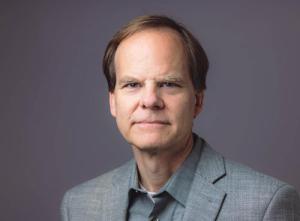 Tom Content: We’re there to say – especially at this time of rising energy costs – how much customers can afford, with the kinds of increases on the table. And to say, “Let’s make sure there’s balance between the shareholder and consumer.”
Tom Content: We’re there to say – especially at this time of rising energy costs – how much customers can afford, with the kinds of increases on the table. And to say, “Let’s make sure there’s balance between the shareholder and consumer.”
The fear is that we don't want to just become part of this operating system. We want to make sure we're attuned to the people in the communities that we're representing. To Michael's point, not exclusively to residential customers, but all consumers before the Commission.
One of my main jobs as a Consumer Advocate is to remind the Public Utility Commission that the public interest involves consumers.
PUF: Michele, what do you think of the role?
Michele Beck: I'm one who likes to say that the more things change, the more they stay the same. Why you need us is because you've always needed us and you're always going to need us.
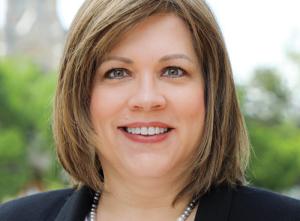 Michele Beck: What we’re still doing, what we’ve always done, is brought the evidence, and done the deep dive. We’re the ones who nerd out, know the ins and outs of revenue requirements, cost-of-service studies, et cetera, and we’re there to present that evidence to make sure the Commissions are able to order in a way that reflects the public interest.
Michele Beck: What we’re still doing, what we’ve always done, is brought the evidence, and done the deep dive. We’re the ones who nerd out, know the ins and outs of revenue requirements, cost-of-service studies, et cetera, and we’re there to present that evidence to make sure the Commissions are able to order in a way that reflects the public interest.
I still hear arguments that Commission Staff say we don't need Consumer Advocates because we're here to represent Commissions. A lot of Commissions do keep a consumer focus in their adjudication, but not all.
In my entire tenure, it's been an administratively focused practice where we follow rules. Many Commissions, including our Utah Commission say, "well, we can't order something unless we have evidence placed before us that talks about that." So, Commissions would not be able to order in a way that is fair to the smaller consumers unless we are there presenting that evidence because no one else is.
What we're still doing, what we've always done, is brought the evidence, and done the deep dive. We're the ones who nerd out, know the ins and outs of revenue requirements, cost-of-service studies, et cetera, and we're there to present that evidence to make sure the Commissions are able to order in a way that reflects the public interest.
PUF: Wisconsin arguably has the coolest name for a state consumer organization, CUB. Tom, what is your role?
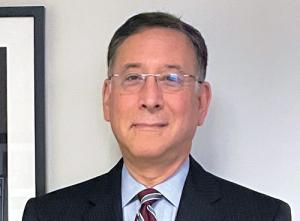 Bill Fine: When you have these ambitious proposals as to how and what projects will be built, how they will be financed, and how federal money may be incorporated into those plans, you tread on new territory, which must still be consistent with traditional ratemaking principles.
Bill Fine: When you have these ambitious proposals as to how and what projects will be built, how they will be financed, and how federal money may be incorporated into those plans, you tread on new territory, which must still be consistent with traditional ratemaking principles.
Tom Content: At CUB, we like to think we're lovable, but I don't know if investor-owned utilities always think that. Most of the NASUCA offices are state government offices, but we are a nonprofit. We are the Citizens Utility Board, and we became the first CUB in the country when we were created by the state Legislature in 1979, just over forty years ago.
CUB was created as a nonprofit to be the advocate for residential and small business customers. What's key in our state is the Commission Staff is not a party to the proceedings.
As the Consumer Advocate, we have our own in-house experts but we also advocate for the Staff's findings to be brought into the record for the Commissioners to act on. When we say we've saved almost four billion dollars for customers since 1986, part of that was bringing Commission Staff's audit findings and audit reductions in rate cases into the record as the sole party that represents the residential and small business customers.
I echo the comments others have made about the importance of putting the consumer side right in front of the Commissioners. We are there to represent the public interest, but there is this balancing act between investors and the folks paying the bills.
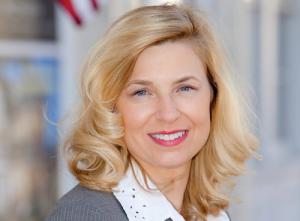 Nanette Edwards: The questions today are, “What is reasonable in today’s environment to be put into an electric customer’s bill?” and “How much socialization of climate change and all these other issues such as electrification, do we think should fairly and equitably be put in a consumer’s electric bill?”
Nanette Edwards: The questions today are, “What is reasonable in today’s environment to be put into an electric customer’s bill?” and “How much socialization of climate change and all these other issues such as electrification, do we think should fairly and equitably be put in a consumer’s electric bill?”
We're there to say �" especially at this time of rising energy costs �" how much customers can afford, with the kinds of increases on the table. And to say, "Let's make sure there's balance between the shareholder and consumer."
PUF: Nanette, what about in South Carolina?
Nanette Edwards: The agency I work for, the South Carolina Office of Regulatory Staff, was created in 2004 by state legislation.
Our Commissioners are subject to the code of judicial conduct. They sit as judges; however, technically it's an administrative body and not part of our South Carolina judicial system.
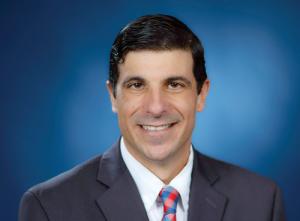 Patrick Cicero: Utilities have always come forward with new and novel ideas and ways of trying to have people part with their money, while not necessarily doing a great job at some of their basic functions. A part of our role is to insist on the boring things that improve people’s lives and improve reliability, like vegetation management.
Patrick Cicero: Utilities have always come forward with new and novel ideas and ways of trying to have people part with their money, while not necessarily doing a great job at some of their basic functions. A part of our role is to insist on the boring things that improve people’s lives and improve reliability, like vegetation management.
Before ORS was created, Commission Staff appeared before Commissioners who may have an office directly next door to the staff person. Then came the Telecommunications Act of 1996, and there was too much talking going on.
So, the general assembly looked to North Carolina and other states and decided to create a separate state agency that cannot be housed physically in the same location as the Public Service Commission of South Carolina. The South Carolina General Assembly sought to ensure fair and impartial hearings.
South Carolina has strong ex parte prohibitions. No entity can have ex parte communication with a Commissioner or Commission Staff. If there's a docket going on or if a matter is reasonably expected to come before the Commission, with minor limited exceptions, you cannot have ex parte communication. It's a criminal misdemeanor in South Carolina.
ORS represents the public interest, and that is defined as, the concerns of the using and consuming public, all customer classes, with respect to utility services. We represent their interest in receiving affordable, reliable, high quality utility service. We have the word reliable in our public interest statement, which is an interesting juxtaposition with where we are today with our power industry.
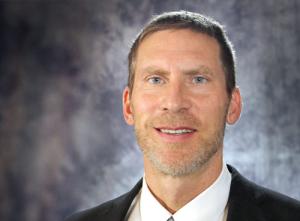 David Lapp: We need to investigate matters that aren’t before the Commission because sometimes the biggest issues might be what utilities are benefiting from under the status quo, and don’t want the Commission to look at.
David Lapp: We need to investigate matters that aren’t before the Commission because sometimes the biggest issues might be what utilities are benefiting from under the status quo, and don’t want the Commission to look at.
The public interest definition changed in 2018 and with the V.C. Summer nuclear abandonment, the South Carolina General Assembly brought back the South Carolina Consumer Advocate. As a result, we have another South Carolina state agency focused on residential customers, and they participate in rate cases. By statute, ORS is a party to every case before the Public Service Commission. That summarizes ORS.
PUF: Bill, how do you see your role?
Bill Fine: Our ancestor was created in 1933 as a part of what was then the Indiana Public Service Commission. In the 1980s we were separated as a distinct agency.
Our clientele includes all consumers in our state: residential, commercial, and industrial. Our specific statutory charge is to represent ratepayers, consumers, and the public. We have a much broader range than many of our fellow advocates, but it all comes back to the common goal of giving consumers a voice they might not otherwise have in these complicated proceedings.
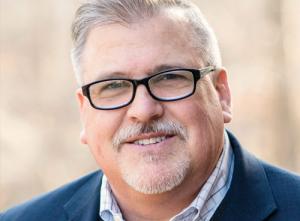 David Springe: Both of those conferences give members a chance to interact with, and get rejuvenated by, conversations and fellowship with other office members. I think the subtle but important work that associations do includes building friendship and fellowship between members.
David Springe: Both of those conferences give members a chance to interact with, and get rejuvenated by, conversations and fellowship with other office members. I think the subtle but important work that associations do includes building friendship and fellowship between members.
From my standpoint, it's a David and Goliath situation. The utilities can produce the best experts and attorneys and have the ability to recover all their costs for doing so through rates. Our participation assures transparency of the process and maintains an important balance in the evidence presented to our Commission.
We advocate for reliability, resilience, stability, environmental sustainability, and affordability. This policy was codified recently by our legislature and the five elements are not ranked for importance.
Also, while we advocate for the interests of low-income Hoosiers, our statutory charge covers the interests of every consumer who uses utility services, and the public generally. This includes economic development projects and the like, so that Indiana is competitive with our neighbors.
PUF: David, speak for Maryland.
David Lapp: We play an important role in educating the public and policymakers. We have to remind them that we're dealing with utilities that are monopolies with fiduciary obligations to their investors.
Utilities do not have obligations to fulfill the public interest. That's the role of regulation. And we don't want unregulated monopolies.
We pride ourselves in trying to do top-quality work, so we look hard at the facts and law and try and apply both faithfully. We see our role as partly trying to help the Commission find the best path forward.
In a way, we're the ombudsman for the Commission, but we're also trying to help the Commission do its job in terms of articulating facts and law that are the best path forward, faithful to the law and facts.
We have a proactive role, as well. We don't just want to appear when utilities file rate cases or when other proceedings show up before the Commission.
Although it's challenging because we are under resourced, but in addition to evaluating what shows up before the Commission, our statute directs us to investigate and ask the Commission to initiate proceedings that are necessary to protect residential ratepayers.
We need to investigate matters that aren't before the Commission because sometimes the biggest issues might be what utilities are benefiting from under the status quo, and don't want the Commission to look at. We see an important part of our role as investigating those issues and raising them before the Commission in a proactive way.
PUF: Chris, talk about North Carolina and as NASUCA President.
Chris Ayers: We are unique in North Carolina. We are one of the largest offices and I've got eighty-one employees when we are fully staffed. We are responsible for audits and investigations of all the cases that come before our Commission.
Like several other states, our Commission Staff does not investigate or participate in proceedings, so we are the primary investigator, and represent all consumers; residential, commercial, and industrial.
Consumer Advocates are responsible for asking the tough questions, making sure the record is complete, and doing so in a way that advances the best interests of consumers. That's the way I see my job.
NASUCA is the organization for Consumer Advocates that pulls all this together and allows us to pool our resources, expertise, and experiences to make one another better and stronger in our advocacy on behalf of consumers.
NASUCA does many things, but a key component is making sure we have a presence in national and regional conversations, presenting the consumer perspective. That is sitting on committees and task forces, conferences, giving that consumer perspective.
Consumer Advocates have large and small offices. There's a lot of expertise and institutional memory in our offices. Of course, folks cycle in and out, some retire or move on. I've hired a lot of new people in North Carolina over the last two to three years.
NASUCA is a place new Staff can turn to for education on what consumer advocacy is and why we do what we do. We help equip folks through training. We do a large number of webinars, briefings, and conferences that are educational.
It's also the ability to network and say, "I know Maryland or Iowa or Arizona just dealt with this. Let's connect my Staff with your Staff and compare experiences, what worked, what didn't work." You incorporate that into the work in your state. Education and collaboration are two of the most important things NASUCA does.
We also have a role in federal advocacy. We make a lot of filings with the FCC. We make filings with FERC and other agencies at times. A lot of NASUCA members have small offices and can't actively participate at the federal level, so the NASUCA voice gives a lot of offices representation in those forums.
PUF: David, talk about the role of NASUCA, and how as Executive Director, you bring the greatest value possible for the time people invest.
David Springe: At its core, I believe any association is about convening its members, getting them together to talk, to share resources, and NASUCA operates with that focus. We have six standing committees that do the bulk of our work: Electric, Natural Gas, Telecom, Consumer Protection, Water, and Accounting and Finance.
That provides a platform for our members to gather. We are old school, we still send emails, and all members can reply.
If David Lapp has a question in Maryland, he sends it out to the email list, other members give a reply with advice, ideas, case law or orders from their states. It is a way to leverage up the small amount of resources that most of our members have available.
NASUCA members, like in every other industry, are facing workforce issues. We've had a lot of retirements of our older members.
Our Advocates tend to come and stay. We don't turn over as quickly as NARUC Commissioners. It's a testament to the passion of the members who lead our offices that they do this job for a long time. But we've had a lot of senior members and senior office Staff retire recently.
We are working hard to bring new members, new office heads, and Staff up to speed. We focus a lot on education. We work with the Department of Energy and Lawrence Berkeley National Lab to do grid training, for example.
Another resource we've been building is a set of regulatory basics webinars that are available for free on our website. When that just-hired junior person comes into the office, here's a set of webinars that'll explain what a revenue requirement is, how to do a cost-of-capital analysis, or what a class cost-of-service and rate design analysis looks like.
Just basics. That's a valuable resource for our offices, because it's hard to get people in and trained in this rarified world that we live in.
We also hold two association conferences every year. We have one where we're together with all the NARUC Commissioners and industry, and one we do by ourselves.
Both of those conferences give members a chance to interact with, and get rejuvenated by, conversations and fellowship with other office members. I think the subtle but important work that associations do includes building friendship and fellowship between members. You go back to the office after a NASUCA meeting and feel charged about getting back into the fight.
We also interact with all the national groups, such as NARUC, NASEO, NGA, NCSL, NACAA and others, to make sure that all the resources and information they have are funneling down into our membership. Same with the industry associations like EEI, AGA and NAWC, other consumer representatives and the federal agencies.
I make sure our membership has space for constructive interaction with industry, stakeholders, and federal regulators. I was an NASUCA office head for fourteen years in Kansas, and I know what my members' day jobs look like. Your head is down because you have a dozen cases on your desk.
I view an important part of my role is to get my people, for just a few minutes or at a conference, to step back, lift their head up from that paperwork, and look at the horizons.
There are policy decisions being made. Things that haven't happened yet, but that are coming. We need to be talking about these issues. For instance, small modular nuclear reactors are in our future, or dealing with light-duty and heavy-duty electric vehicle charging infrastructure questions.
These and other issues are coming and they are going to be big. Sometimes it's good to say, everybody put down your pencils, step back, let's look at the horizon, and see what's coming, because these will be the cases on your desk in three or five years or sooner. Lets think about how we can influence the policy on what's coming instead of simply being reactive to what the utility just filed.
PUF: A lot now is happening with the energy transition and the federal government is investing a lot of money. There is new technology, how do you prepare for that?
Michael Moody: In Michigan there's a lot going on. We've been tackling these issues since the beginning. With the push for carbon-free resources and more transmission, we're at the federal level more than ever before. Reliability, AI, cyber, have become bigger issues, as has the physical security of utilities. Tackling climate change is probably the biggest change in this timeframe.
PUF: Who else wants to chime in with technology, capital investment, that is being talked about or maybe already showing up in rate proposals?
Patrick Cicero: I'll weigh in on a couple pieces. Because it's important to go back to some of the core of what all of us have been saying to some degree, which is that our role is to hold the public utilities and, in part the Public Utility Commissions, accountable for following the law.
We are in a time and space in which there are all these new ideas coming about. Some states have regulatory or statutory mandates to consider environmental concerns, some states don't.
Independent of that, the utilities have always come forward with new and novel ideas and ways of trying to have people part with their money, while not necessarily doing a great job at some of their basic functions. A part of our role is to insist on the boring things that improve people's lives and improve reliability, like vegetation management.
Nobody wants to talk about vegetation management anymore. But in Pennsylvania, and in many of our states, trees are the number one reliability threat. It's not needing new transmission lines. The number one reliability threat is the off-right-of-way trees but we don't want to solve that problem.
Part of the Consumer Advocate's job, at least for me, is when everyone keeps throwing all these new issues at us, that's all well and good, but we also must do the basic subjects well too, to maintain this for the lives of the consumers that we represent.
Another aspect that makes our role in holding the system accountable, is we can appeal decisions if the Commission doesn't get it right. The Commission, as much as they say their decisions represent the public interest, they're not appealing their own decisions, they're not holding themselves accountable to independent courts or the judiciary. That check on regulatory power is important.
To tie this back, the beauty of NASUCA is there are so many perspectives on similar issues that we get to learn from each other. I learned a lot on calls in meetings about different approaches to the same problem.
It is helpful to have this group of people who are committed to the same cause, coming at issues from different perspectives and angles, to reinforce how we do our jobs. It enriches me.
PUF: Michele talk about the energy transition.
Michele Beck: If we're, for example, looking at a state that has a lot of decarbonization goals, I like to say we can still use the same type of analysis to reach the goal. One of my concerns is in a paradigm shift, when there's a new goal and a blank check gets written, I don't think that in any way meets the public interest.
We can shift our goals and still look for the most cost-effective way to accomplish it. We can find a consumer-friendly path to achieve the new goals. That's important to keep in mind. We don't need to reinvent regulation.
The rate of change is significant now. It can be a challenge, especially for those of us who have tiny offices, to try to stay abreast of changing issues and keep up with the day-to-day. Because that's what our job is, it's protecting consumers in the routine regulatory dockets.
But also, to be learning, understanding, and keeping up with the latest developments. For that reason, we want to be at every table and in every forum, but we can't be relied on to do everything.
We still need good Commissioners, we still need good utilities, and we still need other good intervenors, because we're limited in our resources in many respects. I like it when we have collaboration working toward goals.
PUF: David, what do you think about these big issues?
David Lapp: I am going to build off what Patrick was saying. Even though times are changing, our role is to go back in some parts to the fundamentals of regulation. That means questioning market structure. What is a natural monopoly? What is the utility's role?
Because there is this desire on the part of utilities, which I've referred to as Monopoly Creek. They want to expand their role into new businesses, new markets. We need to be looking at that and asking, "Is that an appropriate role for the utility? Is that something that ratepayers should be paying for?"
Being a part of that is educating policymakers, legislators, and others, because we don't want public policy to be paid for by ratepayers if it's not a utility service, because that's regressive. In Maryland, our tax structure is more progressive than our electric or gas rates. It's better to fund those policy measures, not through rates. Part of that is looking at, is this an appropriate role?
To bring it back to NASUCA, one of those questions is present now with EVs and EV charging stations. We have a competitive market for EV charging stations, with ChargePoint, Electrify America, EVgo, all these companies willing to make these investments, so should our utilities be competing in that market using subsidies from ratepayers?
That was a topic discussed at the NASUCA conference in Austin recently. That's the sort of topic those discussions at NASUCA help all of us learn more and look at these fundamental questions as to what should be the role of the utilities.
PUF: Bill there are a lot of changes now in the electric and utilities industry.
Bill Fine: I'm in my seventh year of doing this work, and the velocity of change in those seven years has been tremendous. I'm reaching the conclusion that historians will look back at this as a massive experiment; we're rebuilding the grid while we're introducing new and still developing technologies in generation, transmission, and distribution.
I know my friends in the industry are risk averse. The consumers are also risk averse. When you have these ambitious proposals as to how and what projects will be built, how they will be financed, and how federal money may be incorporated into those plans, you tread on new territory, which must still be consistent with traditional ratemaking principles.
All of us are feeling our way as to what is appropriate and what is a prudent investment when much is changing so quickly. That's my biggest takeaway from what's going on right now and why involvement in an organization like NASUCA is so important. We need to get the perspective of many different people who are confronting these same issues in often different societies.
PUF: Nanette, where is your state on these issues and with decarbonization?
Nanette Edwards: For South Carolina we have hurricanes and winter weather, so vegetation management is critical. One utility is very proactive on vegetation management and as a result their restoration times are faster.
If you go to Charleston, South Carolina; it's a picturesque city. Understandably, a portion of the public says, "We don't want you cutting down the Palmetto trees. It takes away from the scenic value." But safety first and lives first.
For consumers, so much of everyday life is dependent on power and especially, for medical-needs customers who require oxygen or have heart monitors. Before 2005, we had landlines that were on copper so when power went down, you could still dial 911 and get help.
But when the power goes down, we're all more reliant on wireless technology. It's great. But when you don't have a way to charge, it's a different environment.
I share the concern about the electric vehicles and charging stations, and it's an opportunity to put more in rate base. We've got this massive transformation for our grid with electrification of the transportation sector.
The questions today are, "What is reasonable in today's environment to be put into an electric customer's bill?" and "How much socialization of climate change and all these other issues such as electrification, do we think should fairly and equitably be put in a consumer's electric bill?"
PUF: Lightning round on what you want the community to know about the world of NASUCA and the Consumer Advocates?
Michael Moody: We're there in every rate case day-in and day-out. I think that's a key thing.
PUF: Tom, what should people know about NASUCA and Consumer Advocates?
Tom Content: We're there no matter what, even as the pace of change has become more dramatic. Consider how rapidly the price of solar and energy storage has been coming down and the extreme weather we're seeing around the country.
Even with all that change, what's needed is the customer's voice to be there year-in and year-out, heard in all cases. I can't say enough about the importance of NASUCA and its help in raising awareness and deepening the knowledge for all of us as we're trying to be that constant voice in our own states.
PUF: What about you, Michele?
Michele Beck: A lot of folks know that we're there for the cause, that we're dedicated to representing consumers. But also, we're dedicated to the technical analysis and bringing in the evidence, and maybe people don't see that about us.
PUF: Bill, what's the one thing everybody needs to keep in mind about State Consumer Advocates?
Bill Fine: My word is vigilant.
PUF: I bet you can't top that.
Patrick Cicero: Not in one word. The entire system would not exist without consumers, without somebody buying electricity, gas, water, and wastewater. So, the system shouldn't exist without Consumer Advocates, somebody representing their interests.
PUF: Chris, what should people remember about NASUCA and State Consumer Advocates?
Chris Ayers: It's the passion that our people have. Most of our folks could be making more money somewhere else but believe in the mission. They care deeply about getting good, fair, positive outcomes for customers.
We are the State Utility Consumer Advocates created by legislatures and most of us are state government employees, but there's a passion that goes with the advocacy. We're not just some bureaucrats crunching numbers and saying, "eh, we feel like giving the utility X percentage rate increase." There's passion and purpose in what we do and how we do it.
PUF: Last word. David's bringing passion.
David Springe: I haven't been in this game for thirty years for nothing. I love the people; I love the issues. My last word is that these are great offices to work at if you want to be in one of the most interesting and dynamic areas in our economy.
If you want to work on behalf of consumers to make change and do good things, check out your state utility Consumer Advocates. It is an amazing group to work with. So, come join us. It is a special place.


